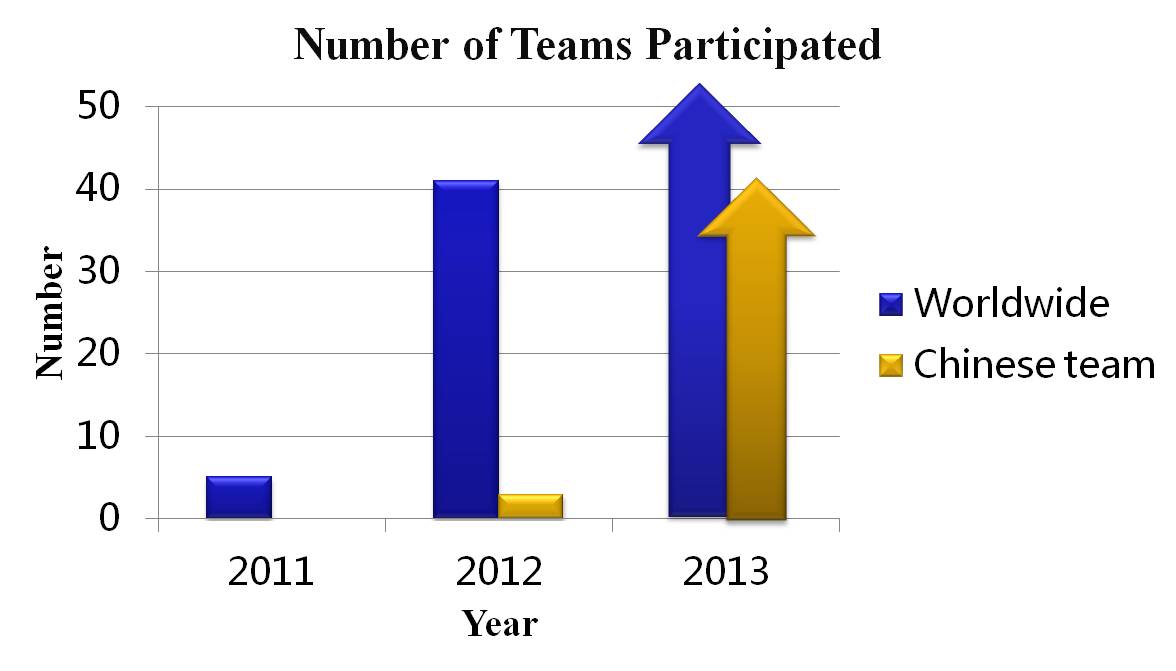Team:Peking/HumanPractice/SowingTomorrowSyntheticBiologists/Pre-investigation
From 2012.igem.org
Human Practice
Sowing Tomorrow Synthetic Biologists
Pre-investigation
Background
In 2009 AAAS Forum, the president of the Massachusetts Institute of Technology, Susan Hockfield, told the Science & Technology Policy that a third revolution in the life sciences is fostered. The third revolution, known as Synthetic Biology, springing from the convergence between physical and biological sciences, serves to promote human life to a new level, just like the development of industries in the early 20th century. In 2011, the Chinese government even incorporated the research of Synthetic Biology into The 973 Plan, aiming to establish new methods of synthesizing bio-based materials.

An emerging subject calls for more intelligent and lively minds gathering together to generate new ideas. In fact, the development of Synthetic Biology is benefited from international Genetically Engineering Machine (iGEM) competition, which gathers undergraduates and even secondary school students worldwide to propose and validate ideas with great potential. President Hockfield said, it is clear that students of current generation are very comfortable with the idea of pursuing research that crosses different boundaries of the sciences and engineering, and should be encouraged to be "bilingual" across disciplines.
Therefore, this year 2012, with the Beijing Teenager Science & Technology Club as our ally, the Peking iGEM team has decided to gather genius secondary school students together, motivate them to study Synthetic Biology and guide them towards future participation in the iGEM high school division.
Pre-investigation on high school students in Beijing
Based on our goal, we briefly made a survey on the situation of Beijing High School's participation in the iGEM HS Division. For 2012 iGEM HS Division, there were only 2 Beijing High School teams (out of 3 Chinese teams) participating in the competition. Unfortunately, neither of them insisted on finishing their projects. Thus, we considered to know more about the Beijing high school students in the first place.
In early May, several of our team members went to The Second High School attached to Beijing Normal University, one of the top high schools in Beijing. We visited the school Molecular Biology Laboratory, took photos and had a chat with the lab manager and the principal's secretary. In fact, most of high schools in Beijing have been equipped with sophisticated devices enabling students to implement experiments in their spare time. However, not only the students have little knowledge about Synthetic Biology and iGEM, but also they have no academic support towards their experiments, as the teachers said.
Therefore, according to the situation, we should first promote the high school students' awareness of Synthetic Biology, manage to discover and solve the problems that limited their participation in iGEM, and then guide them toward future engagement in this grand international Jamboree.
Later, according to the datas on questionaires we gathered after the lectures, we made it clear what we should do next. In fact, our lectures helped to propage the concepts of SB and iGEM competition to high school students, most of who didn't know about those issues. Some students are willing to participate in the iGEM competition while others are not due to academic and financial shortage.
Therefore, we decided to write a report together with a teacher from Beijing No.4 High School to apply for a specific funding for Beijing high school students to participate in the iGEM competition; on the other hand, we began to guide students from The Second High School attached to Beijing Normal University towards their future participation in iGEM competition.
 "
"




















































